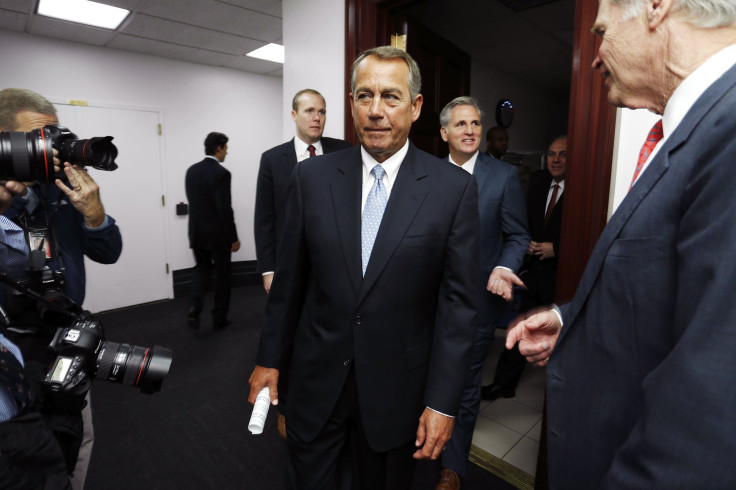Congress Likely To Pass Tax Break One-Year Deal

WASHINGTON – Congress is moving to quickly and painlessly pass a one-year extension of a long list of tax cuts that effect both corporations and working-class Americans. It’s not the multi-year or permanent deal that was in the works before falling apart before Thanksgiving. But it will ensure taxes don’t go up. And Congress can say it got something done.
In the most Washington cliché, Congress opted to kick the can down the road.
For weeks it appeared that a bipartisan deal would make many of the tax breaks permanent, including tax breaks for commuters who utilize public transit and a research and development credit that has many fans in the Republican Party. But when the deal left out credits that target low-income workers, like the Earned Income Tax Credit, it fell apart.
The EITC and the Child Tax Credit, another popular provision for middle class tax payers, aren’t set to expire until 2017. But Democrats saw attaching them to the corporate tax breaks as their only way to ensure passage.
The vote, while not controversial, will be pitched to the public as an important effort to prevent rising taxes. House Speaker John Boehner said the vote is “to prevent tax hikes on millions of families and businesses.”
Republicans will remain critical of President Barack Obama for threatening to veto the long-term deal. “When you look long term, when there is a bipartisan agreement that brings jobs, I think it will be best for the White House to agree to move forward,” House Majority Whip Kevin McCarthy said.
Dealing with end-of-year deadlines for tax cuts has become a holiday tradition for Congress. Some, like EITC and the Child Tax Credit, are so regularly renewed that they are almost permanent. But it still requires Congress to sign off every few years.
The bill, named the Tax Increase Prevention Act, is expected to have smooth sailing through the House in a Wednesday afternoon vote. Democrats aren’t opposing the measure. Republicans are authoring it. And it doesn’t appear there will be much opposition in the Senate.
When it comes to big tax packages, the entire debate is about leverage. Republicans want the president to sign the bill, so they know it can’t completely omit what Democrats are asking for. And Democrats know it will be hard to get anything passed once Republicans control all of Congress, so they need to attach their wishes to what Republicans want.
The decision to punt crafting a comprehensive deal could serve as a preview of how Congress might handle an effort to rewrite the entire tax code. A total overhaul of the tax code has been a bipartisan wish for years. But ideological differences -- including how to handle a litany of tax credits that litter the code -- has been a sticking point.
Republicans argue changes to the tax credits, and the code entirely, should be revenue neutral, meaning the government doesn’t make any money off of them. Democrats think cutting tax credits is the easiest way to increase tax revenue and don’t want to lower rates as an offset.
© Copyright IBTimes 2024. All rights reserved.












